1. Say Hello First

If you pass your neighbors and look down at your phone, you’re signaling disinterest. A quick smile or “good morning” builds warmth faster than you think. Humans naturally trust people who acknowledge them consistently. The smallest gesture can be the first invitation to future conversations.
On the flip side, silence can read as cold or standoffish. When neighbors feel ignored, they assume you’re not interested in connecting. Once that impression sets in, it’s hard to undo. Making the first move sets the tone for a friendlier relationship.
2. Keep Noise in Check

Few things create tension between neighbors faster than loud music at midnight. Noise is one of the top reasons people complain to landlords or even call the police. Respecting quiet hours shows that you value your neighbor’s peace of mind. It’s an easy way to prove you’re considerate without saying a word.
Being mindful of noise also makes you more approachable. People are far more likely to invite you over if they don’t associate you with irritation. Even if they enjoy music or parties themselves, they’ll appreciate that you know when enough is enough. It’s about striking a balance between living fully and living respectfully.
3. Keep Your Space Tidy
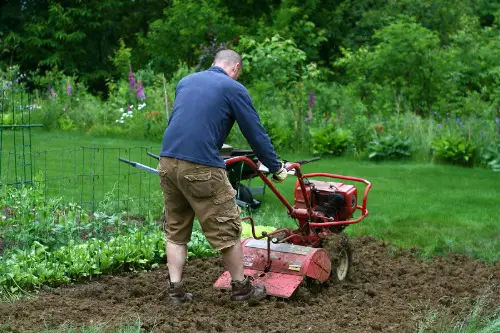
The state of your yard, porch, or even hallway in an apartment building tells a story about you. Cluttered, overgrown, or neglected areas give off the impression that you don’t care. When you take pride in your space, it reflects positively on you as a neighbor. People are more likely to welcome someone who adds to the environment rather than drags it down.
This doesn’t mean you need a picture-perfect lawn or Pinterest-level décor. Just mowing, sweeping, or putting away trash bins on time goes a long way. It shows you’re mindful of shared surroundings. That mindfulness makes people comfortable opening their own homes to you.
4. Offer Help Without Being Asked

Carrying groceries, shoveling snow, or grabbing a package off the porch—small actions stand out. When neighbors see you notice their needs, it builds trust. People are more willing to spend time with someone who shows kindness without expecting anything back. It also creates a cycle of goodwill that naturally leads to invitations.
Offering help doesn’t have to be dramatic. A simple, “Need a hand with that?” opens doors. If you make helpfulness a habit, people will associate you with generosity. That’s exactly the kind of person they want in their living room.
5. Accept Invitations When They Come
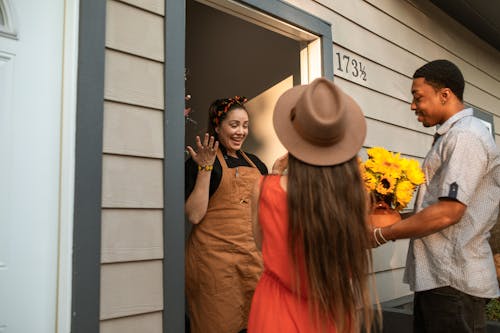
When someone finally extends an invite, your response matters. Even if you can’t make it, showing enthusiasm and offering an alternative keeps the connection alive. Consistently turning down opportunities signals disinterest, even if that’s not your intention. Being available when you can builds momentum in the relationship.
People are more likely to keep inviting those who respond warmly. Think of it like watering a plant—it grows with attention. Ignoring invites, or brushing them off without explanation, makes people stop trying. If you want to be included, participation is key.
6. Respect Parking and Shared Spaces

Parking disputes are surprisingly common in neighborhoods and can sour relationships quickly. Taking up more space than needed or blocking driveways creates unnecessary tension. Shared hallways, laundry rooms, or lobbies need the same care. Respecting these boundaries shows you understand community living.
Neighbors notice when you consistently act fairly in shared spaces. It tells them you’re not going to cause friction over small issues. That peace of mind makes them more comfortable inviting you into their personal space. Trust often begins with respecting what everyone shares.
7. Share Food or Treats

Food has been a universal way to build connections for centuries. Offering cookies, garden vegetables, or even an extra slice of cake creates an instant bond. It shows thoughtfulness and creates an opportunity for casual conversation. Most people find it easier to talk when food is involved.
This doesn’t mean you need to be Martha Stewart. Even store-bought treats carry the same message: “I thought of you.” Sharing food makes you memorable in a positive way. And people love to invite back those who make them feel cared for.
8. Keep Pets Under Control

Whether it’s barking dogs or cats wandering into gardens, pets can be a source of frustration. Being proactive about training and leashing shows respect for neighbors’ boundaries. If pets cause damage or noise, it’s your responsibility to handle it quickly. Neighbors notice when you take ownership.
Pets can also be an opportunity for connection. A friendly, well-behaved dog is often a conversation starter. When you show you’re a responsible pet owner, people are more likely to welcome both you and your pet. Reliability here signals you’ll be a good guest too.
9. Stay Positive in Conversations

No one likes the neighbor who only complains about everything. Constant negativity makes people hesitant to engage beyond polite greetings. Sharing good news, showing interest in others, and sprinkling in humor creates warmth. Positivity draws people in naturally.
This doesn’t mean you have to be fake or overly cheerful. Just being mindful about balance helps—acknowledge challenges, but don’t dwell. People invite those who make them feel good, not drained. The tone you set in small talk influences whether bigger invites follow.
10. Remember Names and Details
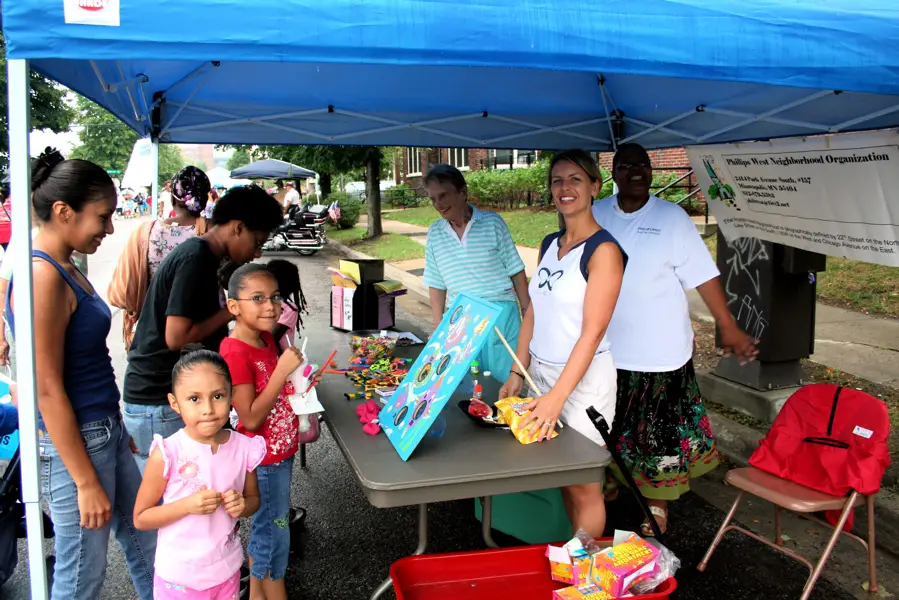
It feels good when someone remembers your kid’s name or asks about your recent trip. Those little details show that you pay attention. People want to connect with others who make them feel seen. Forgetting over and over again can create distance.
Taking mental notes during conversations takes almost no effort but has a big payoff. It builds familiarity and trust, the foundation of invitations. Neighbors who feel recognized will often reciprocate by welcoming you in. Being attentive is one of the simplest but most powerful habits.
11. Offer to Host Sometimes
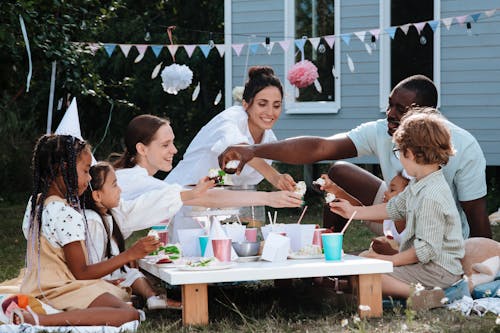
Invitations work best when they’re a two-way street. If you never host, neighbors might feel the effort is one-sided. Even small gestures, like coffee on your porch or a casual board game night, count. Hosting signals that you value the relationship.
You don’t need to throw elaborate parties. A relaxed, low-pressure invite is often even more effective. It shifts the dynamic from guest to equal, deepening the connection. Reciprocity keeps the cycle of invitations alive.
12. Be Reliable When You Say Yes
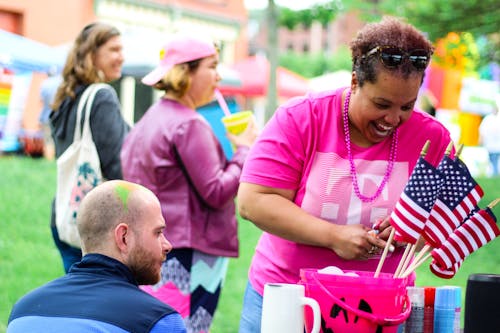
If you agree to join an event, follow through. Cancelling last minute or showing up extremely late can create frustration. Reliability builds trust, while flakiness chips away at it. People want guests who they know will actually come.
Your consistency reflects your respect for their time. Even if life gets busy, communicating early makes a difference. Reliability tells neighbors you’re dependable in small and big ways. Dependable people are the ones who keep getting asked back.
13. Express Gratitude Afterward
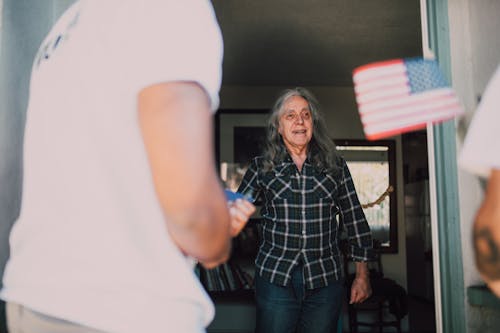
Following up after an invitation seals the connection. A quick thank-you text or mention the next time you see them goes a long way. Gratitude shows you value their effort and hospitality. Without it, hosts might feel underappreciated.
Expressing thanks doesn’t just make you polite—it makes you memorable. People naturally gravitate toward those who make them feel good. When you reinforce that with gratitude, future invites are almost guaranteed. It’s a small step with a big impact.
This post 13 Lifestyle Habits That Decide Whether You’ll Actually Get Invited Next Door was first published on Greenhouse Black.
